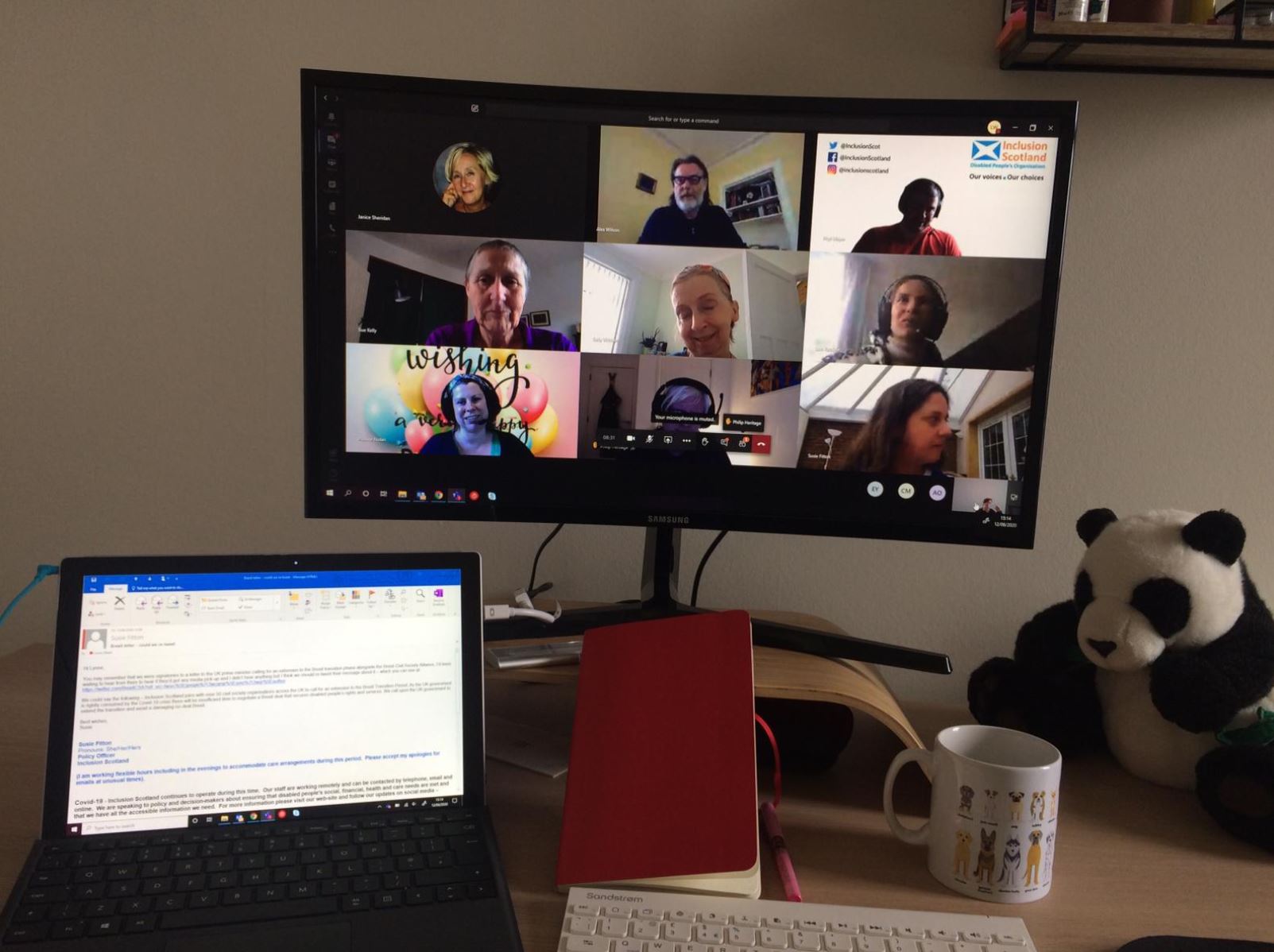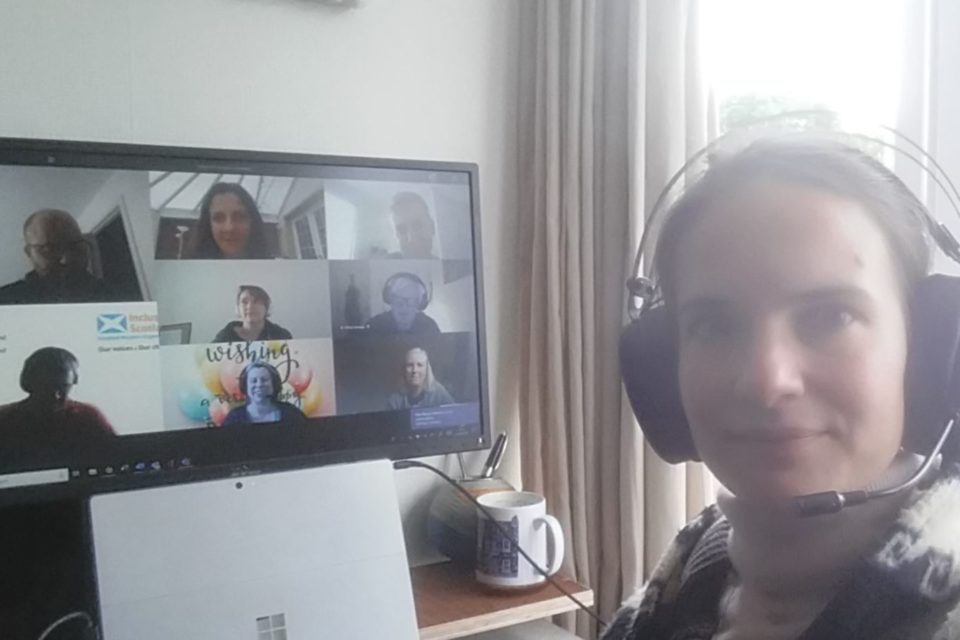A disabled people’s organisation is urging companies to continue using technology to access untapped talent through more inclusive employment practices and support employees as lockdown is lifted.
Inclusion Scotland works to remove barriers “to disabled people’s economic, social and civic inclusion, and to promote their rights, choices and voices, as full and equal citizens”. Through its “We Can Work” internship programme for disabled people, it has experience guiding employers such as STV and Sopra Steria and organisations including the Scottish government and charities on how to make work environments and practices more accessible.
Inclusion Scotland already had established flexible and remote working practices that facilitated the transition into total home working when they became concerned about the coronavirus pandemic.
Dr Sally Witcher OBE, Chief Executive of Inclusion Scotland, said: “The whole way that we do our business aims to be fully inclusive as standard practice. Before the pandemic, we introduced flexible working for all our staff, and some staff worked remotely, sometimes for several weeks at a time. We’re up to speed with technology, and our human resources policies and procedures are very much designed around this.”
Staff at Inclusion Scotland use tools such as Microsoft Teams, the Surface tablet laptop (chosen for its more accessible weight and size), and the accessibility features in Windows 10 and Office 365, to help them collaborate and communicate with colleagues and partners.

Blair Lochrie, Microsoft’s Chief Technology Officer for the Public Sector in Scotland, said: “Assistive technology is most effective when users aren’t even aware it’s there. Tools such as Immersive Reader, Read Aloud and Magnifier are ‘baked in’ to Windows 10 and can be turned on or off at the click of a button. This puts the power of technology into the hands of those who need it most but lets them decide when and how they want to use it.”
Philip Heritage, Business Development Assistant at Inclusion Scotland, who has a visual impairment, said: “Teams has really helped us to look not just at the work-based collaborative aspect but also the social aspect, which was really important. The fact that we could schedule tea breaks to keep morale up, as well as sharing documents and work on them at the same time, was very helpful.”
In his day-to-day work, Heritage uses Microsoft features such as Magnifier, Narrator and the colour contrast cursor.
“The fact that Teams works with a lot of the software that I’m familiar with has been really helpful,” he added.
Heritage has encouraged all colleagues to use accessibility features to improve how they work, whether they are disabled or not.
Technology such as MS teams has allowed Inclusion Scotland to implement remote practice with a more personal approach.
Lois Ratcliffe (main image), the organisation’s Internship Programme Manager, said: “During this pandemic there have been many factors to consider. It is not business as usual, it is about doing the best we can during a global crisis. To continue to feel connected and efficient as a team we utilised the chat and collaboration features in Teams. We try to replicate those water cooler moments, which help to provide informal sense checks and a supportive culture in the office.
“We used Microsoft technology to help us make our everyday work more accessible, including the use of remote working. This meant that when lock down came we had the technology to adapt. As an organisation we have lots of meetings with all kinds of external partners and stake holders however we are not in any rush to get back into the office, we have a virtual one. However, we must continuously ask questions, we can always improve, and this is needed when thinking about inclusion. Inclusion and access will never be ‘all sorted’ it is an evolving process which leads to innovation and better environments and products for everyone.”
Witcher added: “Organisations should put inclusion and flexibility first. Look for areas that can be improved and involve and listen to staff – particularly those with lived experience of disability. Diverse perspectives will add tremendous benefits to your organisation. By making work accessible for disabled people you make it accessible for everyone.”
Michael Vermeersch, Microsoft’s Digital Inclusion Lead and Chair of the MS Disability community, said: “This is a great example how technology can ensure digital and disability inclusion, especially now that research has shown that disabled people are twice as likely to face redundancy. It is key for technology companies and other businesses to engage with Disabled People’s Organisations such as Inclusion Scotland to ensure that we get our approach right and evolve to a more equal and just society.”






